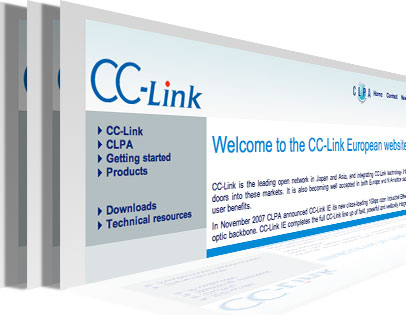The ESCO report (Electronics Systems Challenges and Opportunities) released on June 27 envisages 55% growth in the electronic systems sector by 2020. Whether that is achievable or not, and how it will impact on industrial networking, only time will tell. However, the underlying issue here is how we can bring success to the electronics manufacturing sector in the UK and perhaps Europe in general.
By John Browett, general manager of the CC-Link Partner Association Europe
Smart technologies penetrate every area of our daily lives, from smart phones to smart cities. As a consequence, the electronics systems sector could see significant growth over the next few years in the UK, with possibly similar growth being seen across Europe.
In fact, I think there’s a real argument that we are undergoing a phase of technical development on a par with the industrial revolution. However, relying on demand for additional electronic devices will simply not be sufficient to meet our targets. We need to radically increase exports and I believe the same applies to many other European countries.
As a result, I believe that the industry’s focus should be on increasing its trade with the expanding Asian electronics markets. With emerging economies developing a taste for Western products and services, and building the capital to purchase them, companies should think about investing in technologies that have been used in the target countries for many years.
If you want to set up shop in Asia and become a success story, then it’s essential that you investigate the most common networking methods used in the region. CC-Link has the leading share with about 20% of the market.
We’ve all seen businesses crash and burn, in a whole host of sectors because they refuse to acknowledge local preference and market behaviour.
The progress predicted by the ESCO report could be achieved if Government efforts are coordinated with those of organisations such a UKTI (UK Trade and Investment) and CBBC (China – Britain Business Council), as well as ourselves. The CBBC actively works towards increasing opportunities for companies that want to do business in China and supporting those who make the investment.
The CLPA has always actively promoted its partner businesses in Asia, and on September 24 we are organising an event in Hatfield, England, focused on exactly that subject. Called Gateway to China, the event will feature speakers from the CLPA, Festo, GAMBICA, Intellect, Mitsubishi and Renesas. The tickets are free and can be obtained by registering at http://gateway-to-china.eventbrite.co.uk/.
Industrial networking employmentAnother positive prediction the ESCO report makes is that the resultant trade boom will create another 150,000 skilled jobs in the UK alone. As suggested on page 24 of the report, the numbers of mechanical and civil engineers are still at a healthy level, whereas the electronics engineering sector is really struggling for skilled employees. This new Government incentive will have a positive impact on increasing the numbers of young people entering engineering and most importantly, electronics trades.
Whichever way you look at it, the ESCO report was a much needed high level review of the electronics industry in the UK. It offers an accurate diagnosis of the electronics sector’s ills as well as those of industry overall. Its prognosis is filled with potential; to increase our ability to develop new technologies and improve international trade.
The underlying message here is that in today’s economy, going global is more important than cutting production costs. This is where trade bodies such as UKTI, CBBC and the CLPA can open a gateway to Asia if we all work together.
John Browett will be speaking at Gateway to China, the CLPA’s (CC-Link Partner Association) international trade event being held in Hatfield on September 24. If you want to find out more about how CC-Link technology can help you win business in China and Asia you can book a ticket here – they are free to readers of this blog.




